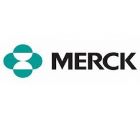Acceptance based on results from the phase 3 KEYNOTE-091 trial

Merck, known as MSD outside the United States and Canada, today announced the U.S. Food and Drug Administration (FDA) has accepted for review a new supplemental Biologics License Application (sBLA) seeking approval for KEYTRUDA for the adjuvant treatment of patients with stage IB (≥4 centimeters), II or IIIA non-small cell lung cancer (NSCLC) following complete surgical resection.
The sBLA is based on data from the pivotal Phase 3 KEYNOTE-091 trial, also known as EORTC-1416-LCG/ETOP-8-15 – PEARLS, conducted in collaboration with the European Organisation for Research and Treatment of Cancer (EORTC) and the European Thoracic Oncology Platform (ETOP).
The FDA has set a Prescription Drug User Fee Act (PDUFA), or target action, date of January 29, 2023, however, further data may be provided during the review process that may delay this date.
The study has dual primary endpoints of disease-free survival (DFS) regardless of PD-L1 expression and DFS in patients whose tumors express PD-L1 (tumor proportion score [TPS] ≥50%). At the interim analysis of this study, adjuvant treatment with KEYTRUDA demonstrated a significant improvement in DFS for patients regardless of PD-L1 expression compared to placebo.
“KEYTRUDA is foundational in the treatment of metastatic non-small cell lung cancer. The acceptance of our application demonstrates the progress we are making in earlier lines and earlier stages of certain cancers across our oncology portfolio,” said Dr. Eliav Barr, senior vice president, head of global clinical development and chief medical officer, Merck Research Laboratories. “If approved, KEYTRUDA would be the first adjuvant immunotherapy-based option in the U.S. for patients with stage IB (≥4 centimeters) to IIIA non-small cell lung cancer following surgical resection regardless of PD-L1 expression.”
In addition to KEYNOTE-091, six other pivotal trials evaluating a KEYTRUDA-based regimen in patients with earlier stages of cancer met their primary endpoint(s). These trials included: KEYNOTE-716 in stage IIB and IIC melanoma; KEYNOTE-054 in stage III melanoma; KEYNOTE-564 in renal cell carcinoma; KEYNOTE-522 in triple-negative breast cancer; KEYNOTE-629 in cutaneous squamous cell carcinoma; and KEYNOTE-057 in Bacillus Calmette-Guerin-unresponsive, high-risk, non-muscle invasive bladder cancer.
Merck has an extensive clinical development program in lung cancer and is advancing multiple registration-enabling studies, with research directed at earlier stages of disease and novel combinations. Key studies in earlier stages of NSCLC include KEYNOTE-091, KEYNOTE-671, KEYNOTE-867, KEYLYNK-012 and KEYVIBE-006.

Subscribe To Our Newsletter & Stay Updated